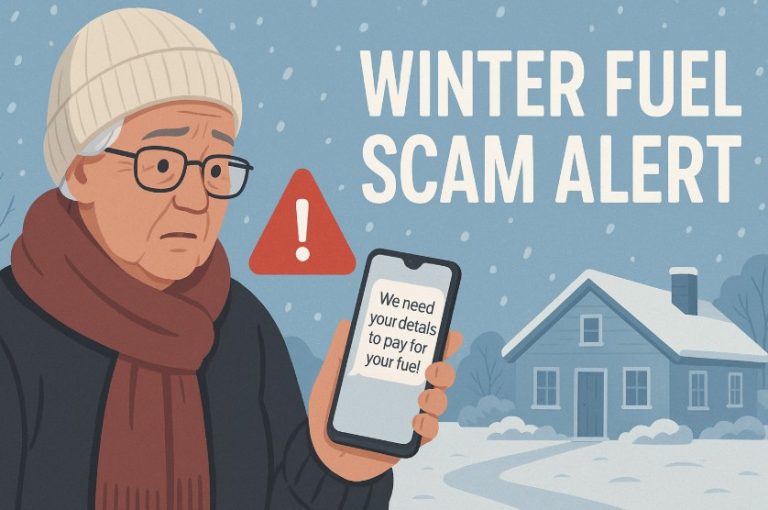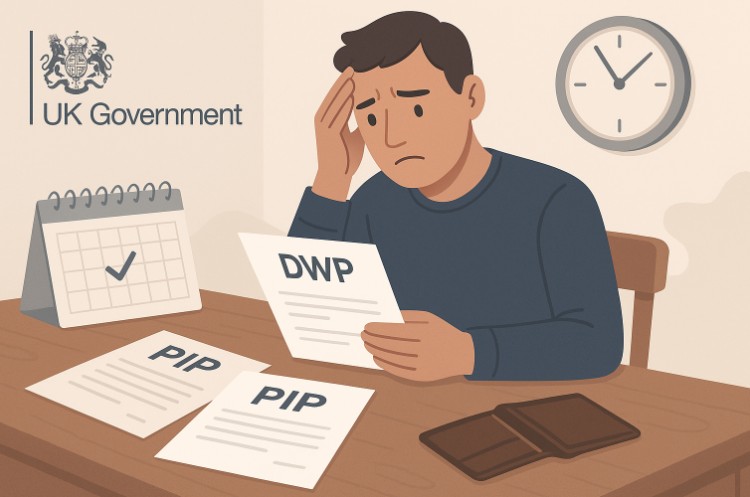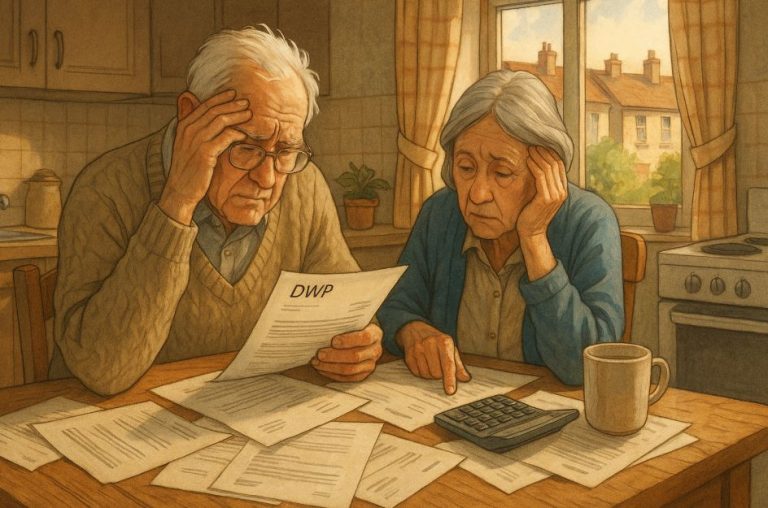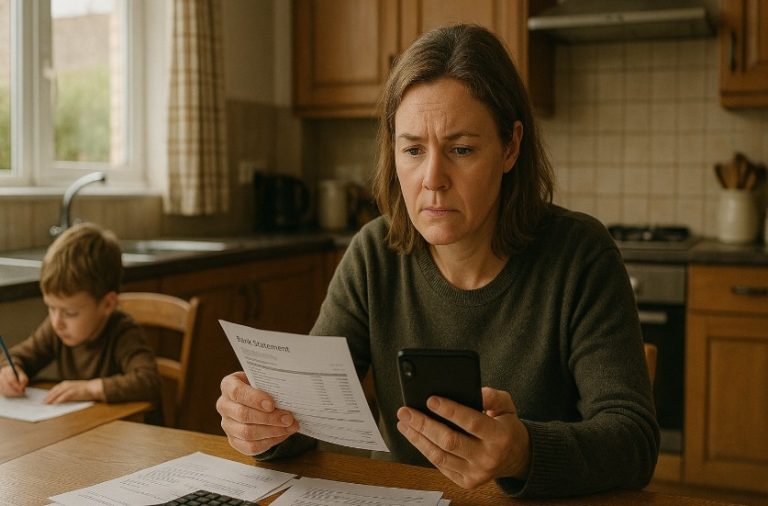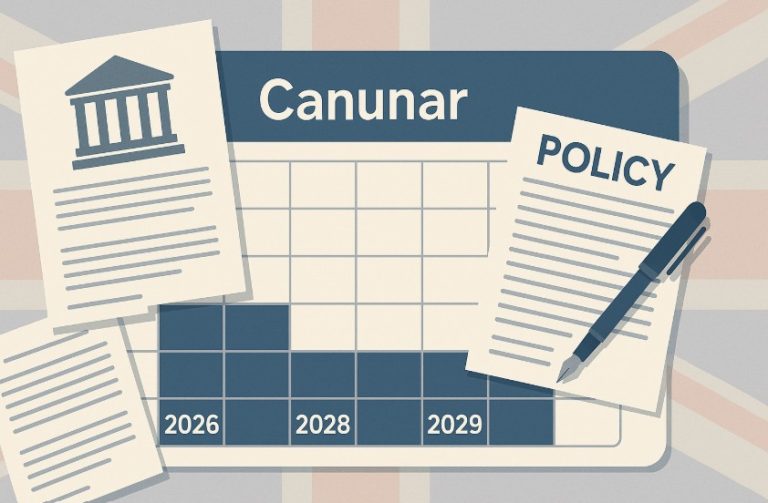Missing a Universal Credit appointment can result in serious consequences, including benefit sanctions and payment delays.
However, the Department for Work and Pensions (DWP) recognises that there are legitimate reasons someone may not be able to attend.
Understanding what qualifies as an acceptable excuse can protect your benefits and reduce stress during already challenging times.
This guide outlines the 15 most widely accepted reasons for missing a Universal Credit appointment and explains how to notify the DWP correctly, what evidence is required, and how to avoid potential sanctions.
What Are the Rules and Expectations Universal Credit Appointment?
Universal Credit appointments are a crucial part of a claimant’s journey through the welfare system in the UK.
The Department for Work and Pensions (DWP) sets these appointments to assess eligibility, review progress, and ensure the claimant is meeting their work-related requirements.
Attendance is considered mandatory unless the claimant has been excused for an approved reason.
Missing an appointment can affect a person’s payments unless they are able to provide a valid justification.
These justifications must be reported promptly and supported by relevant documentation. The DWP assesses whether the reason constitutes “good cause” under its guidelines.
Appointments may be face-to-face, telephone-based, or online. Regardless of format, the DWP treats them equally. Failing to attend any scheduled meeting can result in sanctions if not handled correctly.
What Happens If You Miss a Universal Credit Appointment?
Missing a scheduled appointment without prior notice or valid explanation may lead to a Universal Credit sanction. This can result in partial or complete suspension of benefit payments for a certain period.
The severity of the sanction depends on the frequency of missed appointments and whether the claimant has a history of non-compliance.
For first-time offences, a warning may be issued, but repeated absences can lead to longer sanctions, such as reduced payments over several weeks.
Some cases are escalated further if no explanation is provided or the individual is considered not engaging with the system.
Claimants are advised to report absences as soon as possible. The DWP considers both timing and content of explanations when deciding whether to impose a sanction.
15 Acceptable Reasons for Missing a Universal Credit Appointment
Below are the 15 widely recognised and acceptable reasons the DWP may accept for a missed appointment. Each reason may require supporting evidence depending on the situation.
1. Medical Emergency or Illness

Unexpected medical issues are among the most common and generally accepted reasons for missing a Universal Credit appointment.
These could range from sudden illnesses like a high fever or severe migraine to more serious conditions like asthma attacks, infections, or mobility-limiting injuries.
In more critical cases, such as a visit to A&E for a serious condition, the claimant would naturally be unable to attend a scheduled meeting, especially on short notice.
The DWP does consider these situations under “good cause,” particularly when health and safety are involved.
What claimants should do:
- Inform the DWP via their Universal Credit journal as soon as they are able
- Include the date and nature of the medical emergency
- If unable to write, a family member or support worker can update the journal or call on their behalf
Accepted forms of evidence:
- Hospital admission/discharge paperwork
- GP letter or medical certificate
- NHS appointment confirmations
- Prescriptions or official notes from urgent care services
Medical reasons are usually taken seriously, especially when supported by timely and credible documentation. The key is clear communication.
2. Hospital or GP Appointments
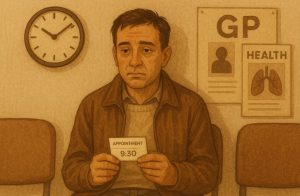
If a claimant has a pre-booked medical appointment that clashes with their Universal Credit meeting, this is typically accepted as a valid reason.
These appointments may involve ongoing treatment, specialist consultations, regular check-ups, vaccinations, or diagnostic tests such as blood work, scans, or physiotherapy.
Healthcare appointments cannot always be moved, especially in cases involving NHS waiting lists or follow-ups for chronic conditions.
DWP work coaches generally encourage claimants to prioritise health, especially if they have informed the DWP in advance or shortly after missing the appointment.
Best practices:
- Notify the DWP before the appointment if known ahead of time
- Use the Universal Credit journal to share appointment details
- Request rescheduling of the Universal Credit meeting where possible
Supporting documents:
- Appointment letters or text messages from NHS services
- Notes from a GP surgery or hospital receptionist
- Screenshots of online appointment confirmations
- Patient discharge summaries for same-day procedures
Ensuring that the reason is communicated in advance or as soon as possible after the missed meeting will reduce the likelihood of a sanction.
3. Bereavement or Funeral Attendance

Experiencing the loss of a close relative or loved one is a profoundly distressing time, and the DWP acknowledges that bereavement can significantly impact a claimant’s ability to attend appointments.
Whether it’s emotional distress, travel for the funeral, or responsibilities related to arranging the ceremony, the claimant may not be in a fit state to attend their scheduled appointment.
In the UK, claimants are not typically expected to attend Jobcentre meetings during such a period, especially if the funeral occurs close to or on the appointment date.
Claimants are advised to:
- Report the bereavement as soon as they are able
- Clearly explain the relationship to the deceased and any obligations (e.g. being the next of kin)
- Request additional time or flexibility if mourning continues beyond the funeral date
Types of acceptable evidence:
- A death certificate (if available)
- A funeral service programme or invitation
- Letter from a funeral director
- Statement from a bereavement counsellor or religious leader
In most cases, the DWP is respectful and empathetic when claimants face personal loss. Still, documenting the situation in the Universal Credit journal ensures transparency and helps protect benefit payments from disruption.
4. Caring for a Dependent in Crisis

Caring responsibilities can change quickly and unexpectedly, especially for claimants who look after children, elderly parents, or individuals with disabilities.
When a dependent experiences a sudden medical issue, behavioural crisis, or emergency that demands immediate attention, the claimant may have no option but to miss a scheduled Universal Credit appointment.
This type of situation is particularly common among single parents, carers, or those with limited support networks.
The DWP typically accepts these situations as valid reasons, especially when the urgency is clearly explained and backed up with contextual information.
For instance, a child becoming seriously unwell at school, an elderly relative suffering a fall, or a dependent with special needs having a distressing episode may all qualify.
In these cases, claimants should describe the event in their journal, including when it happened and how it interfered with their ability to attend.
Supporting documentation might include:
- A letter from a school, care provider, or GP
- A social worker’s note confirming the situation
While the DWP may not require evidence for every such occurrence, consistent patterns or repeated incidents are more likely to be accepted when supported by clear explanations.
5. Mental Health Crisis or Therapy Session

Mental health struggles can significantly affect a person’s ability to function, let alone attend a scheduled meeting.
Conditions like anxiety, depression, PTSD, or bipolar disorder can escalate quickly and leave claimants unable to communicate effectively or even leave their home.
The DWP has increasingly recognised the role mental health plays in a claimant’s capacity to meet requirements.
A mental health crisis, particularly one that impairs decision-making, memory, or physical behaviour, is a legitimate reason to miss an appointment.
Likewise, a pre-scheduled counselling or therapy session that overlaps with the DWP meeting may be accepted.
Claimants who experience anxiety or panic attacks may not feel comfortable contacting the DWP immediately, but it’s important to explain the situation as soon as they are able, ideally through their online journal.
Helpful but optional forms of evidence include:
- A letter or note from a therapist, counsellor, or GP
- An appointment confirmation from a mental health support service
The DWP may offer additional support or reschedule the appointment without penalty if the claimant clearly communicates their mental health challenges.
6. Transport Failure Beyond Control

Even the most responsible claimants can encounter circumstances beyond their control, particularly when it comes to travel.
Public transport delays, train cancellations, road closures, or personal vehicle breakdowns are all realistic scenarios that can prevent someone from attending a Jobcentre appointment on time.
This reason is especially relevant in rural or suburban areas where transportation options are limited and claimants rely on a single mode of travel.
Missing an appointment due to a train strike or a breakdown on the motorway is not considered negligence if promptly reported.
Claimants should provide a brief explanation of what occurred, when it happened, and how it prevented their attendance. In cases of mechanical breakdown, a receipt from a recovery service (e.g. AA or RAC) can help support their case.
For public transport disruptions, a news article, rail company update, or screenshot of a cancellation notice can serve as evidence.
Minimal but effective documentation includes:
- Recovery service statement
- Transport service alert or screenshot
The DWP will typically accept this reason if it’s well-documented and not part of a pattern of repeated absences without explanation.
7. Court Summons or Legal Obligation
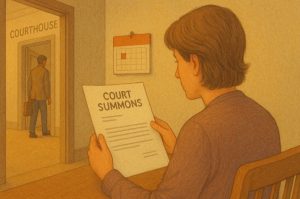
Attending court is a legally binding requirement, and in the eyes of the DWP, it takes precedence over Universal Credit obligations.
If a claimant is required to appear in court, whether as a defendant, witness, juror, or part of any legal proceedin,g they cannot be penalised for missing a Jobcentre appointment that conflicts with this legal duty.
These obligations are often unavoidable and may be scheduled with little flexibility. In some cases, individuals may also be required to meet with a solicitor or legal advisor in connection with ongoing legal matters.
These meetings, particularly those relating to criminal, family, or housing issues, may occur during standard office hours and at short notice.
When informing the DWP, the claimant should briefly outline the reason for non-attendance and confirm that it was a court-mandated requirement. Most importantly, official documentation should be retained and uploaded or presented to the Jobcentre.
Common forms of documentation include:
- Court summons or jury service letter
- Letter from a solicitor detailing the appointment
- Notice of a legal hearing or tribunal attendance
Provided the obligation is genuine and the documentation is clear, the DWP will usually mark the absence as justified.
8. Severe Weather Disruption

Adverse weather conditions, while not common year-round in the UK, can cause serious disruptions that prevent travel, especially in winter.
Heavy snow, flooding, storms, and icy roads are not only disruptive but can also pose genuine safety risks to those trying to reach Jobcentre locations.
The DWP takes such risks into consideration, especially when the claimant demonstrates that travel would have been unreasonable or dangerous.
This is particularly relevant for people living in remote or poorly serviced areas where transport is already limited.
Claimants should inform the DWP as soon as possible when weather conditions interfere with an appointment.
Describing the extent of the disruption and explaining why alternative transport wasn’t possible adds credibility. In urban settings, public transport delays caused by weather can also be used as justification.
Accepted evidence could include:
- Local authority weather warnings
- Transport provider cancellation notices
- News reports or weather alerts relevant to the claimant’s location
While not every cold or rainy day qualifies, genuine weather-related dangers are often treated with leniency when properly communicated.
9. Childcare Emergency

Childcare emergencies are one of the most relatable reasons for missing a Universal Credit appointment, particularly for single parents or those without consistent backup care.
If a child becomes sick at school, a nursery unexpectedly closes, or a babysitter cancels at the last minute, the claimant may have no choice but to remain at home or pick up their child.
These events can be sudden and leave little room to reschedule or arrange alternative care. In most cases, the DWP will accept the situation as a valid reason, especially if it’s promptly reported and described accurately.
While the DWP does not always ask for evidence in one-off cases, claimants may strengthen their case by noting any communication received from schools, nurseries, or childcare providers. This could include:
- A text or email notification from the school or nursery
- A note from the childcare provider explaining their unavailability
- A GP note if the child required medical attention
This reason is particularly sensitive, as it involves the safety and wellbeing of a dependent. The DWP usually responds with understanding, especially when the event is unforeseen and clearly communicated.
10. Victim of Crime or Domestic Abuse

Experiencing a crime can be traumatising and often leads to immediate disruption in a person’s routine and emotional stability.
When a claimant has been a victim of theft, assault, or any other criminal offence, attending a Universal Credit appointment might be neither practical nor advisable. The same applies, perhaps even more urgently, to those experiencing domestic abuse.
In such cases, claimants may be physically injured, emotionally overwhelmed, or dealing with police reports and support services.
These situations can escalate quickly and affect the claimant’s ability to travel, focus, or even feel safe leaving their home.
The Department for Work and Pensions has specific protocols in place for supporting survivors of domestic abuse.
They are encouraged to inform the DWP in confidence, either through the journal or in discussion with a work coach, when they feel ready.
For other crimes, such as burglary or robbery, the DWP will typically accept the incident as a valid reason for non-attendance if it is reported promptly.
Forms of supporting evidence may include:
- A police incident reference number or statement
- A letter from a domestic abuse support worker or shelter
- A GP or hospital note if medical assistance was required
The DWP generally treats these cases with care, especially when the incident is recent and has been clearly documented.
11. Fire, Flood, or Home Emergency

Unexpected home emergencies can throw a person’s day into chaos. A house fire, gas leak, or flooding can quickly become dangerous and require immediate action.
In such situations, the claimant may need to leave their home, wait for emergency services, or coordinate temporary shelter. Understandably, attending a DWP appointment would not be feasible during such events.
These emergencies not only create physical barriers to attending but can also have serious psychological impacts. Being displaced from home or worrying about structural damage can leave claimants unable to focus or travel.
The DWP considers such emergencies as valid reasons, particularly if they are reported as soon as the situation allows.
Where possible, claimants should include a short explanation of the issue and, if available, some documentation to confirm the event.
Possible types of evidence include:
- A letter or report from the fire brigade or emergency services
- A notification from a landlord or housing authority
- Insurance claim documentation or photos of the damage
This reason, while less common, is almost always accepted if the emergency was real and reasonably documented.
12. Sudden Work Trial or Interview

One of the main objectives of Universal Credit is to support claimants in finding employment. As such, if a job opportunity arises, especially at short notice, the DWP is usually supportive of the claimant attending, even if it clashes with a pre-scheduled appointment.
Sometimes employers arrange interviews or work trials on very short notice. This can happen the day before or even the morning of the appointment.
Attending these opportunities can help a claimant move closer to employment, which aligns with the DWP’s goals.
Claimants should always report job-related absences through the Universal Credit journal and ideally include details of the employer, date, and time of the opportunity. If contacted by the DWP, they should be prepared to confirm the nature of the work trial or interview.
Supporting evidence may include:
- A confirmation email or letter from the employer
- A screenshot of the interview booking or job offer
- Verbal confirmation during a follow-up call with a work coach
Provided the opportunity was genuine and the details are shared clearly, the DWP will view it as a constructive reason to have missed the appointment.
13. Pre-Approved Holiday or Travel

Claimants receiving Universal Credit may occasionally have plans for holidays, family visits, or essential travel that fall during a time when an appointment is scheduled.
While travel does not automatically exempt someone from their obligations, if the DWP has already approved time away, then missing an appointment during that period is generally accepted.
This situation often arises when travel plans were submitted through the Universal Credit journal and acknowledged by the work coach in advance.
Issues typically occur when an appointment is booked by the DWP during a previously approved absence, either due to an administrative oversight or system error.
Claimants who experience this should promptly refer to the communication history in their journal that shows prior approval. Even if the travel was personal in nature, prior approval is what determines whether the absence is excused.
The DWP may request:
- A journal message or notification confirming the approved travel dates
- Travel booking confirmations (train, coach, or flight tickets)
- Accommodation details if relevant
As long as approval was obtained and properly documented, this reason is rarely disputed.
14. Technical Difficulties (for Online Appointments)

As Universal Credit increasingly integrates digital tools, many appointments are now conducted online via video call or telephone.
While this format adds convenience, it also introduces new risks, particularly technical issues that may prevent attendance.
Problems such as poor internet connectivity, software crashes, phone malfunctions, or login failures can all interfere with a claimant’s ability to access their appointment.
These situations are generally accepted by the DWP, provided the issue is reported as soon as it is resolved and the claimant makes an effort to reschedule.
This reason is especially relevant for individuals in rural areas with weak broadband or those using older devices. While the DWP expects claimants to be digitally capable, it also recognises that technology sometimes fails.
In case of a missed digital appointment, the claimant should briefly explain:
- What technical issue occurred (e.g. no Wi-Fi, device error, app not loading)
- When the issue occurred and what was done to try and resolve it
Supporting documentation, though not always necessary, could include:
- Screenshots of error messages
- Confirmation from an internet provider of an outage
- A repair receipt or service ticket
The key is transparency, showing that the claimant made every reasonable effort to attend despite technical problems.
15. Miscommunication or DWP Error

Occasionally, missed appointments are not the fault of the claimant at all. Administrative errors within the DWP system, such as incorrect dates being uploaded, appointment notifications not being sent, or updates not appearing in the claimant’s journal, can cause confusion and result in no-shows.
Miscommunication may also occur if the claimant receives a phone call at an unexpected time, misses it due to lack of prior notice, or is given conflicting information about when their appointment is meant to happen. In these cases, the claimant should respond quickly to clarify the misunderstanding.
The DWP understands that errors can happen on their end, and if a mistake is acknowledged or supported by a clear timeline of journal entries or messages, the absence is usually excused.
What helps in this situation is:
- Maintaining regular journal updates
- Saving appointment notifications or correspondence
- Promptly raising a dispute or clarification request through the journal
If it’s clear the claimant acted in good faith and the mistake was not due to negligence, the DWP will typically treat the missed appointment as valid.
How to Notify the DWP About a Missed Appointment?
Timely communication is crucial. Claimants should report the reason for a missed appointment as soon as possible through one of the following methods:
- Updating their Universal Credit journal
- Calling the Universal Credit helpline
- Visiting the Jobcentre Plus if safe and practical
When reporting, include:
- The date and time of the missed appointment
- The reason for non-attendance
- Any plans to reschedule
Failing to communicate promptly, even with a valid reason, may result in sanctions.
What Evidence Should You Provide to Avoid a Sanction?
The DWP requires documentation to assess whether a reason is acceptable. While not every excuse needs paperwork, supporting evidence can significantly improve the chances of avoiding a sanction. Below is a helpful overview.
Types of Evidence Commonly Accepted by the DWP
| Situation | Evidence Type |
| Illness or medical issue | GP note, hospital discharge papers |
| Court attendance | Court summons or solicitor letter |
| Childcare problems | School closure notice, note from childminder |
| Transport issue | Breakdown receipt, official travel delay notice |
| Work-related reason | Interview confirmation email or letter |
| Domestic crisis | Police incident number, support worker letter |
| Technical failure (online) | Screenshot, internet service provider message |
Where possible, upload digital copies of these documents directly to your Universal Credit journal or bring them to your next appointment.
Can You Appeal a Universal Credit Sanction?
If a claimant believes they were sanctioned unfairly, the first step is to request a Mandatory Reconsideration. This process allows the DWP to review its decision.
The claimant must:
- Request the reconsideration within one calendar month
- Provide supporting evidence
- Clearly state why they disagree with the sanction
If the Mandatory Reconsideration is unsuccessful, the claimant can appeal to an independent tribunal.
Sanction Appeal Process Overview
| Stage | Action | Time Limit |
| Step 1 | Request Mandatory Reconsideration | Within 1 month of decision |
| Step 2 | Submit supporting documents | As soon as possible |
| Step 3 | Appeal to tribunal | Within 1 month after reconsideration decision |
Proper documentation and a clear timeline help strengthen the appeal.
What Are the Tips to Avoid Missing Universal Credit Appointments?
Planning ahead can reduce the risk of missed appointments. Here are a few simple strategies that help maintain compliance:
- Set alarms or calendar reminders for upcoming appointments
- Regularly check the Universal Credit journal for updates
- Notify the DWP in advance if attendance may be an issue
- Ensure childcare and transport arrangements are confirmed early
- Maintain records of all DWP communications
Remaining proactive shows commitment and can make a positive difference if issues arise later.
Conclusion
Missing a Universal Credit appointment doesn’t automatically mean you’ll be sanctioned. The DWP allows flexibility for valid, documented reasons.
From health emergencies to transport disruptions, many situations are recognised under the “good cause” rule. Always notify the DWP as soon as possible and provide appropriate evidence.
With clear communication, claimants can protect their benefits and maintain their standing within the Universal Credit system.
FAQs
Can I be sanctioned if I have a valid reason but don’t notify DWP in time?
Yes, failure to communicate with the DWP within a reasonable timeframe can still result in sanctions, even if your reason is legitimate. Always report promptly.
What if I missed the appointment due to anxiety or depression?
Mental health is recognised by the DWP as a valid excuse, especially if documented by a GP or therapist. Providing supporting evidence strengthens your case.
Will Universal Credit accept a self-certification for illness?
Short-term illnesses may be self-certified, but repeated use or more serious conditions often require medical documentation.
Can I reschedule my appointment online?
Yes. You can request to reschedule through your Universal Credit journal, especially if you know in advance that you can’t attend.
How long do I have to report a missed Universal Credit appointment?
It’s best to report within 24–48 hours. Delays beyond this may lead to sanctions unless there are exceptional circumstances.
What happens if I miss multiple appointments in a short time?
Repeated absences, even for valid reasons, may trigger a review or conditionality warning. Consistent communication and documentation are essential.
Is missing an online appointment treated the same as an in-person one?
Yes. Online meetings hold equal weight. Technical issues must be reported with evidence, and appointments should be treated as formal obligations.

